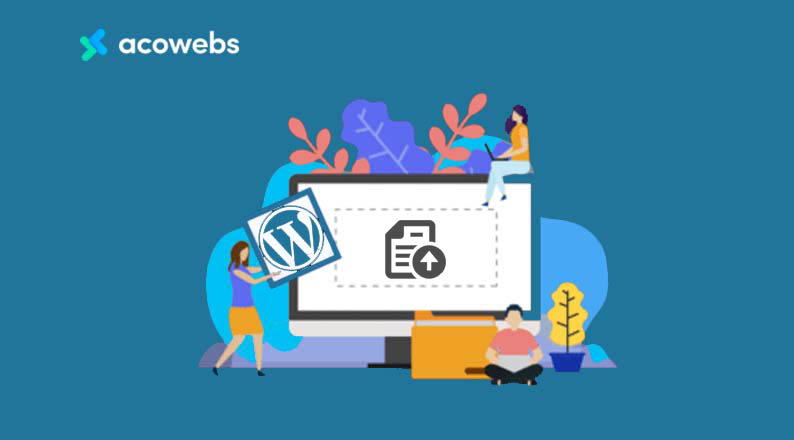Often WordPress website owners turn a deaf ear to the risks of having a hole in the website’s security system. Due to this nonchalance, their websites become the victim of hackers who steal their information or use their website for unethical purposes.
Therefore, making sure your WordPress security system is foolproof falls into the category of the necessary tasks every WordPress website owner should look after. This includes taking care of File upload vulnerabilities.
In case the hacker finds a way into your website, some of the consequences can be the blacklisting of your website and suspension of your account. However, you can escape this situation by taking the proper security measures we will be discussing in this article.
In order to understand the measures you need to take to keep your website safe, you have to get a clear understanding of what File Upload Vulnerability is. We’ll walk you through all the necessary nooks and corners of the File upload vulnerability below.
File Upload Vulnerability; Explained
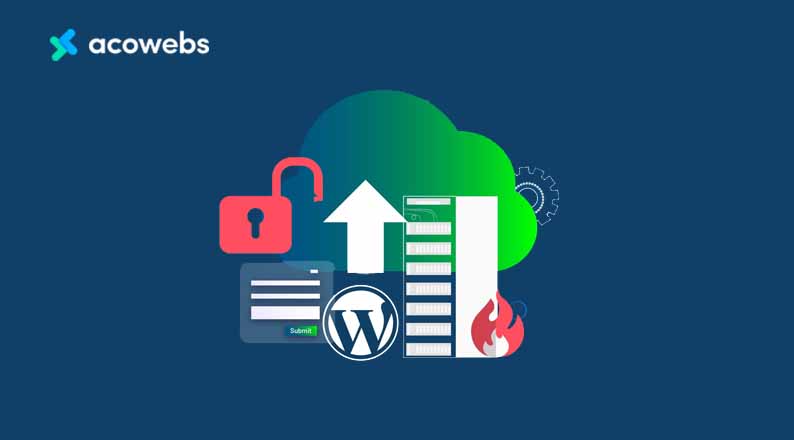
There are several websites that permit users to submit files. The submission of files can be for a variety of purposes, such as job applications or essential documentation. This feature is often used by Job portals where the users have to submit their resumes and cover letters, also by websites that are controlled by banks.
Once the user has uploaded the file, WordPress has the authority to go through the file and then store it in the “Upload directory” folder. The rule followed by WordPress and the plugins is to only allow the uploading of files that don’t have the capability to execute commands.
There are specific formats that WordPress accepts when the user uploads a file. When it comes to images, the acceptable formats are png and jpeg. While for documents, WordPress only accepts .docx or .PDF file.
Since all these formats do not have the ability to execute commands, even if the uploaded file consists of codes that are intended to harm your website, they won’t be able to create any difference in your website.
Also Read: How to Clean up a Hacked WordPress Website
Types of file upload vulnerabilities
There are two types of file upload vulnerabilities; local and remote vulnerabilities. The local vulnerability can be explained as the lack of security in software that allows the users to upload a file with a nefarious purpose which is later executed and compromises your website.
Mistakes that lead to local file upload vulnerability
To get a clear understanding of how file upload vulnerabilities take place, we can consider the vulnerability in WordPress’ plugin called WPshop; the coding that led to the vulnerability is as follows:
There isn’t just one problem in WPshop’s code; one can easily spot two issues that lead to file upload vulnerability consequences.
First of all, this code lacks the step to verify that the user has the approval to upload a file. A proper authentication procedure is necessary; otherwise, anyone can upload files that may cause vulnerabilities without having to get through any verification or authorization process.
Therefore, this mistake, while developing the plugin, shall be avoided at all costs if you want to keep your website safe from file upload vulnerabilities. The proper code that doesn’t have any risks of file upload vulnerabilities is:
Secondly, the developers have not specified the acceptable formats of file in the incorrect code. Not requiring a specific name of the file or the content in the file permits the hackers to easily upload .php files, which the hacker will later retrieve from the internet and sabotage your website conveniently.
To avoid this situation, while developing, one can assign a specific file name so that the hacker doesn’t have the ability to upload files with a .php extension. The developers can also utilize some of WordPress’ built-in features to verify file extensions prior to its final upload.
Insert wp_check_filetype() to successfully get rid of this error in the code.
You can also limit the file type to images by changing the code to:
After securing the file names and type, all that is left to take care of is the uploading of the file. This can be achieved by using the wp_handle_upload command:
ALSO READ: Cybersecurity in the eCommerce Industry: Security Threats & Best Practices
Monitor the uploaded content
If a hacker is trying to upload a .php or any file that can be executed, you can avoid this upload by constantly keeping an eye on the content that is being uploaded.
If someone is just accepting images for their upload, then the getimagesize() function can come in handy as this function has the ability to determine if the uploaded file is an image that satisfies all the requirements of the upload, i.e. the extension.
ALSO READ: Why WordPress is the best platform to build your business or startup website
Remote File Upload Vulnerabilities
On the other hand, remote vulnerabilities occur when the input of the user is intended to download files from the internet and then to save those files locally.
Both of these vulnerabilities are capable of harming your website substantially; therefore, the tips we will mention below should be on your priority list if you care to keep your website safe.
Steps to avoid remote file upload vulnerabilities
Following are some essential steps that can be taken in order to avoid remote file upload vulnerabilities to a huge extent:
- Limiting the type of file extensions a user can upload can reduce or almost diminish the chances of remote file upload vulnerability.
- Forbid the entry of anyone who doesn’t have the permission and validation to access the feature.
- Double-check if the file has the appropriate content that you require.
- Keep an eye on any file that has been picked from the internet for content.
- Keep your files in a safe directory that can only be accessed by specific personnel.
- Add a header in the stored file in order to make it inexecutable.
Finding File upload vulnerabilities
Hackers are found everywhere, and they are always on the watch for holes in websites’ security so they can exploit them. Vulnerability in your website can be a bonus for them.
The hackers always keep a watch out for vulnerabilities through which they can get control of the website. Hackers find it extremely easy to find vulnerabilities in WordPress plugins. As soon as the developers come to know about the vulnerability, they release an updated foolproof version of the plugin or software along with bug fixes.
The updated version comes along with the information about the vulnerability through which the hackers target the plugins with the same vulnerabilities.
1. Keep your WordPress version updated
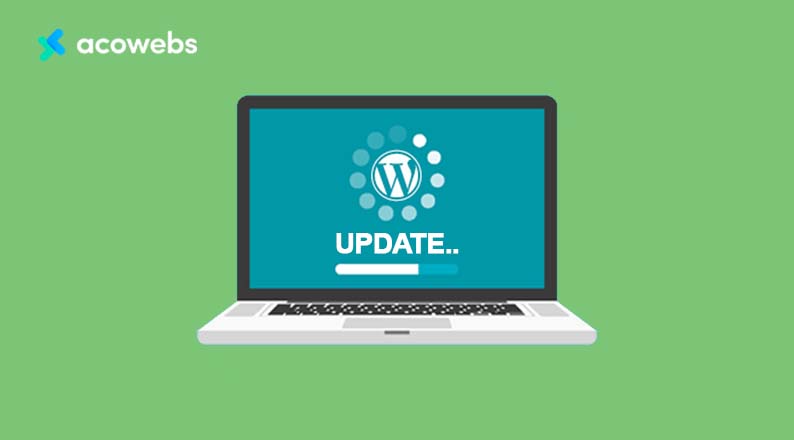
Using an old version of WordPress can act as a major source of attracting hackers. The older versions of WordPress are more prone to getting hacked as compared to the latest ones. Every updated version of WordPress closes a door for the hacker to get in.
Therefore, breaking into a website running on the latest version of WordPress is extremely rare. By the time the hacker does find a way to break into the security system, WordPress drops another new version.
Furthermore, using an updated version of WordPress is crucial due to several reasons; one of those reasons can be speed. For instance, it is observed that increased loading time in the website can lead to a substantial loss in case of customer satisfaction and conversions.
Every second matters if you want your website to make strides. The newer the version, the better the speed. Hence, using an old version of WordPress can take you several steps back from your goal, and most importantly, it will give hackers a green signal to enter the website.
ALSO READ: WordPress 5.7 Release; New And Updated Features And Specifications
2. Opt For A Top-Rated Plugin Or Theme
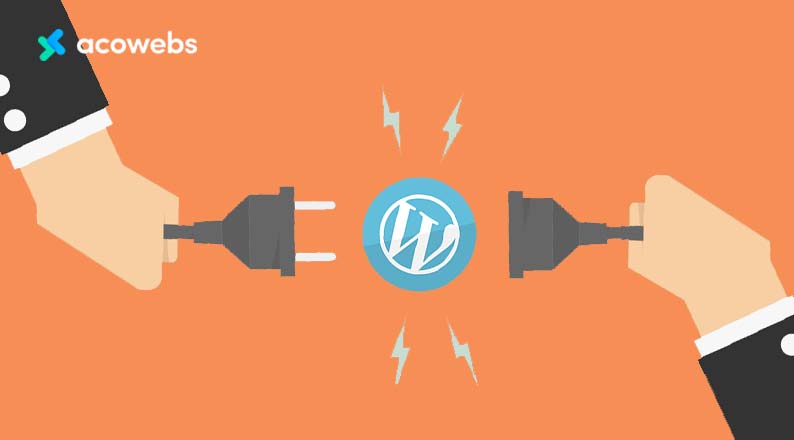
Just updating your WordPress version isn’t enough to keep your website secure; looking after the versions and rating of the plugin and theme you use is also a major factor that contributes to the security of your website.
The old version of plugins or themes can be a considerable threat to your website’s security as hackers often use them for local file upload vulnerabilities. Above all, if the plugin has the option of uploading files, then it is even more important to update its version.
The plugin and theme developers spent the majority of their time going through their own plugins to spot a bug or a door that was left open for the hacker to get in. Once they encounter any error or loophole, they fix it instantly and drop an update for the users. Adhering to the updated versions of plugins will keep you off the list of hackers’ prospects.
When the research was conducted, it was observed that all the popular and reputed plugins updated their version just a week before, while the other got updated a month ago. The whole purpose of a developer’s job is to keep the progress of the plugin or application in check and fix the issues as soon as possible.
Using an up-to-date theme can also help in keeping the hackers at bay. Furthermore, updating the theme will not affect your website’s customization settings.
Audit logs
Another factor that can help in keeping your website secure and keep track of who visits your website is by checking the audit logs. With the help of this tactic, you can keep an eye on what plugin the hacker is focusing on and then proceed accordingly. There are two ways you can deal with the hacker in this situation; deleting the plugin or updating it.
In short, keeping everything up-to-date is the key to achieve premium security.
3. Incorporate Your Website With A Security Plugin
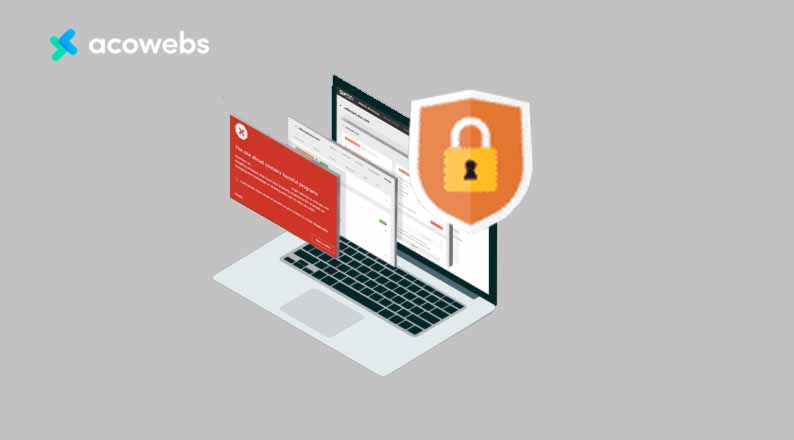
People often opt for the wrong plugins due to the saturation of plugins on the internet. Such huge quantities of plugins mean that some of them are going to be secure while the others aren’t. Plugins are the main entry point for hackers to get control of your website.
Over hundreds of websites are compromised due to the low-level security the plugins were providing to user’s websites. The market is deficient when it comes to quality plugins.
However, opting for a WordPress security plugin can save you a lot of trouble. It keeps your websites out of harm’s way and leaves no holes for the hackers to get in. Furthermore, installing this plugin can also keep your other plugins safe. Even if these plugins have a way for the hackers to get in, the WordPress Security plugin won’t allow them to get past it.
There are some exceptional plugins that keep you notified about the errors in your website before they reach a dangerous level. The scanner feature in Security plugins can help you get rid of the problem without slowing down your website.
Furthermore, it is extremely important to use plugins for mobile phones to ensure the premium safety of your website. Hackers assail mobile phones every minute; therefore, keeping your mobiles safe in order to not lose important information should be your top priority.
Diving deep into the details of the plugins and reading reviews of the chosen plugin will help you in evaluating whether it’s worth it or not.
Taking the two measures mentioned above in this article will suffice to keep your website’s security out of danger, but the addition of a security plugin will give you the utter satisfaction that no hacker will be able to get in control of your website.
ALSO READ: Top WordPress plugins
Wrap up
Hackers can do considerable damage to your website; so, keeping your website safe and sound falls under your responsibilities. With just a few measures and precautions, you can secure your website.
Investing in your WordPress website’s security is the best investment you can make. If you really want your website to do well, then adding a security plugin will be the best way to achieve it. Hopefully, this article provided all the help you needed regarding file upload vulnerabilities and their solutions.
Acowebs are developers of WooCommerce plugins that will help you personalize your stores. It supports the additional option with feature-rich add-ons which are Woocommerce product addons, that are lightweight and fast. The premium version of this plugin named Woocommerce product extra options can be purchased from this website. Update your store with these add-ons and enjoy a hassle-free experience.












 Login
Login
 Cart
Cart